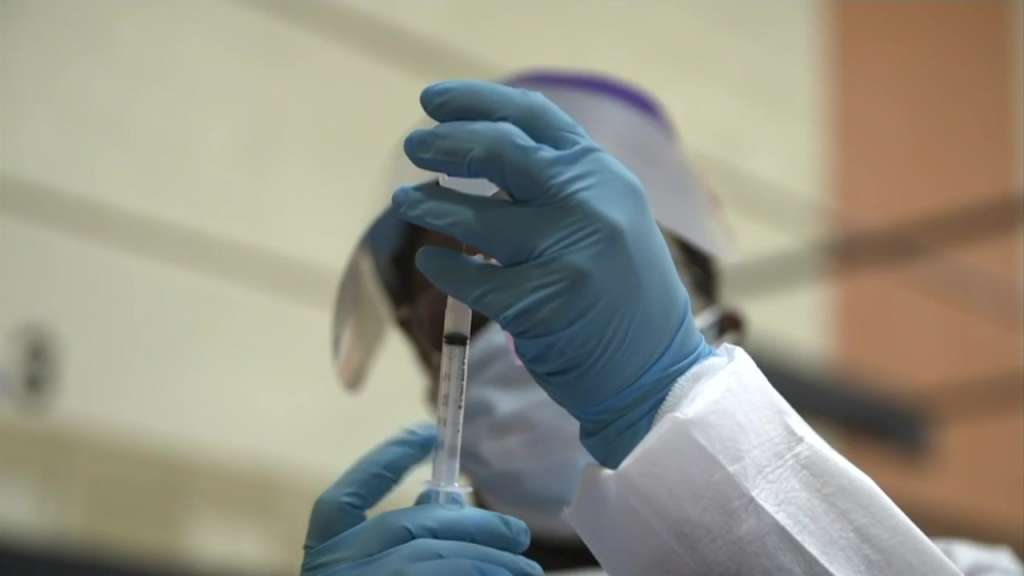Cape Cod officials are encouraged by the region’s progress toward vaccinating its most vulnerable populations, but with eligibility now open to all adults, they worry that the islands will fall behind.
Martha’s Vineyard and Nantucket are more reliant on the stream of doses the Baker administration allocates, with neither island home to a retail pharmacy in the federal vaccination program and every mass vaccination site a ferry ride and a drive away.
On a Thursday conference call with reporters, Sen. Julian Cyr of Truro warned that local leaders are “very concerned and troubled” about the availability of vaccines on the two islands now that their populations are increasing with the arrival of seasonal residents.
“What’s happening is that islanders are having to travel off-island to get vaccine appointments, and this is really not a viable option, nor should it be for most islanders given the expense and the need to make vehicle reservations weeks in advance,” Cyr said.
Both islands have been at or near the top of vaccination rates in Massachusetts since at least mid-February, when the state started publishing weekly data showing the percentage of residents with at least one dose administered by county.
In the most recent report from April 15, Martha’s Vineyard and Nantucket had each administered at least one dose to 52 percent of their residents. Only Barnstable County had vaccinated a higher share of residents at 56 percent.
Officials are worried, though, that the pace will not last. Cyr and Rep. Dylan Fernandes of Falmouth wrote to Health and Human Services Secretary Marylou Sudders last week, warning that the islands’ early success “is now stalling.”
Cyr and Fernandes urged the administration to boost the supply of vaccines it ships to the two islands now that more and more seasonal residents and workers — which balloons small year-round populations to highs of 200,000 on Martha’s Vineyard and 60,000 on Nantucket — are arriving.
Martha’s Vineyard Hospital has received about 1,300 doses per week for the past two months, while Nantucket Cottage Hospital did not receive any last week, according to Cyr and Fernandes. They said that forces many residents to head to the mainland for immunization, a potentially difficult and costly endeavor.
“Taking your car off island can be prohibitively expensive and can take an entire day to complete, requiring working people to forgo wages, obtain childcare, and navigate other logistical hurdles,” Cyr and Fernandes wrote. Residents getting the Pfizer or Moderna vaccine would need to schedule two off-island trips at a cost of hundreds of dollars each time, they said.
The administration has not responded to Cyr and Fernandes, according to Cyr’s office, and could not be reached for immediate comment Thursday morning.
Cyr told reporters during a Cape Cod COVID-19 Response Task Force call that Island Health Center on Martha’s Vineyard and Martha’s Vineyard Hospital should start receiving vaccine supply this week through a federal Health Resources and Services Administration, or HRSA, COVID-19 Vaccine Program.
“That is good news, and we think we can begin to provide that secondary stream for vaccines in Martha’s Vineyard,” he said. “But this means that Nantucket really remains a high priority given that the only allocation for vaccines on Nantucket is through the state via doses given to Nantucket Cottage Hospital. There’s no other source for vaccination on the island, and that supply of vaccine has remained flat and in some cases decreased.”
Both islands have withstood what Cyr called a “sustained outbreak” of COVID-19 in recent weeks, particularly affecting the workforce that includes a high proportion of people of color and immigrants.
In Barnstable County, the virus outlook has improved slightly after a concerning stretch. Cyr said the county’s average positive test rate dropped below 5 percent, which “typically indicates that an outbreak is on its way to containment.”
(Copyright (c) 2024 State House News Service.

